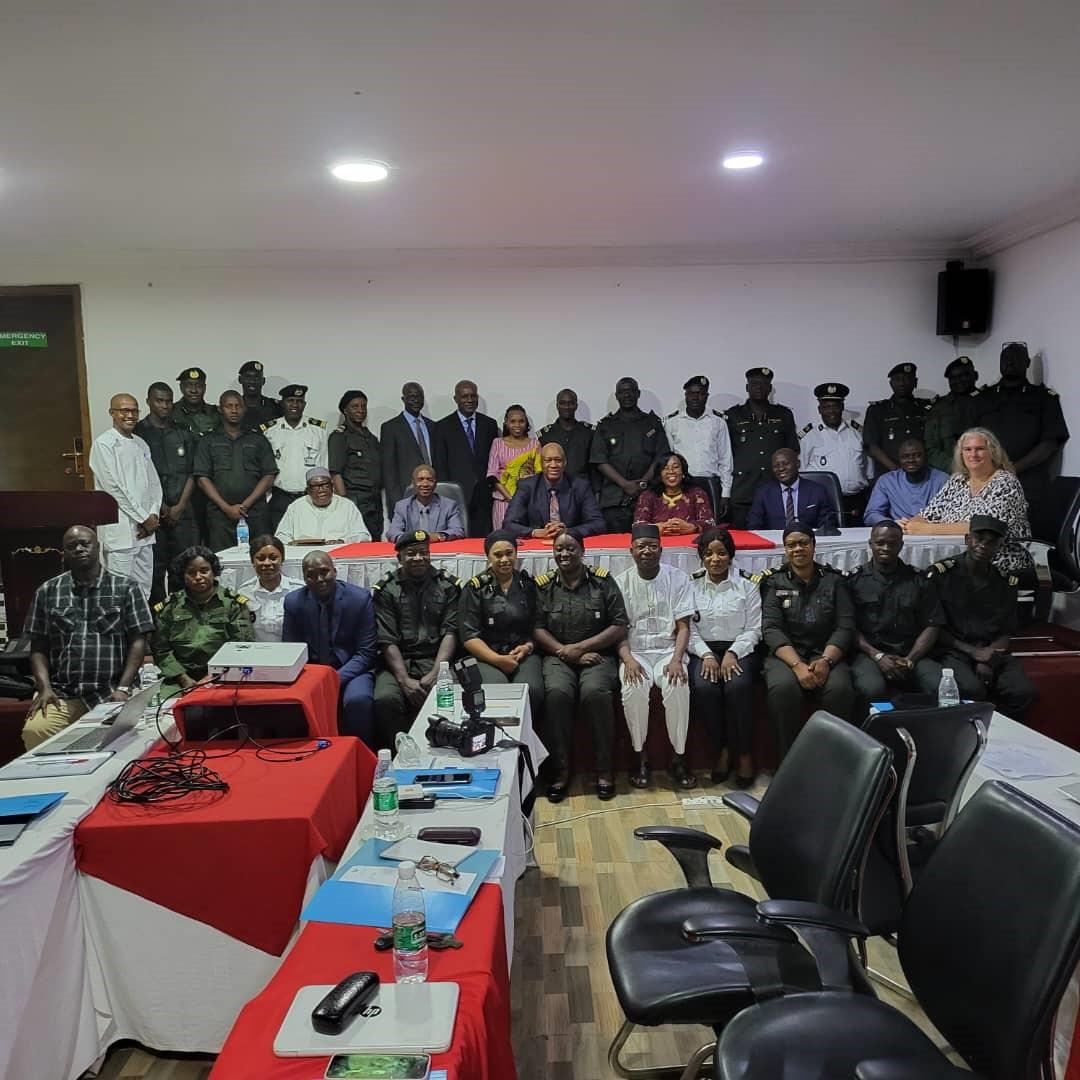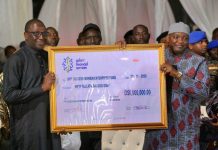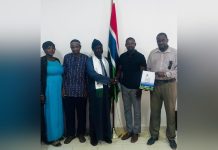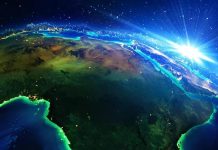Musa O Bah
Africa-Press – Gambia. At least 25 customs officers drawn across the country are currently undergoing a five-day intensive training on rules of origin. The training was organised by the Gambia Revenue Authority and funded by the World Customs Organization, from the 7th to the 11th of November at Metzy Residence Hotel.
In opening remarks, Commissioner General of GRA Mr Yankuba Darboe said the rules of origin are generally the criteria used to determine the national source of a product. Their importance is derived from the fact that duties and restrictions in several cases depend upon the source of imports.
The determination of the origin or source of a product in international trade is important for numerous reasons including and not limited to the application of the most-favored-nation treatment (MFN). But also for the implementation of some commercial policy measures such as anti-dumping and countervailing duties, trade embargoes, safeguard measures and quantitative restrictions or tariff quotas, CG explained. For customs operations, it is important to distinguish between two types of origin – preferential origin and non-preferential origin.
“Preferential rules origin determines whether goods qualify as originating from certain countries, for which special arrangements and agreements apply. Where all the requirements are met, goods with preferential origin are eligible to be imported with lower duty rates or at zero rate, depending on the preferential tariff treatment provided for a very close example of preferential rules of origin is the ECOWAS Trade Liberalization Scheme (ETLS) where ECOWAS originating goods are accorded free duty, AU and ECOWAS levy in all ECOWAS member states,” he stated
The non-preferential rules of origin, he explained, on the other hand, are used to determine the country of origin of goods for the application of the most-favoured-nation treatment (MFN) but also for the implementation of some commercial measures such as anti-dumping and countervailing duties, trade embargoes, safeguard measures and quantitative restrictions or tariff quotas.
“The complexity of modern-day manufacturing where the product comes from is not easy when raw materials and parts crisscross the globe to be used as input in scattered manufacturing plants has made it difficult to determine the economic nationality of those goods. As such, it is therefore imperative that clear guidelines are provided and harmonized to safely, precisely, and indiscriminately identify the real origin of a product,” he stated.
He concluded that three key criteria are used. He named them as wholly obtained goods that are exclusively produced/processed in a country without incorporating materials of any other country. This includes plants, minerals, or live animals, among other products Change in tariff classification: processing resulting in a change in Chapter or tariff heading.
Post Views: 69 Share this:Click to share on Facebook (Opens in new window) Click to share on Twitter (Opens in new window) Click to share on WhatsApp (Opens in new window) Click to share on Skype (Opens in new window) Click to print (Opens in new window) Click to share on Pinterest (Opens in new window) Musa O Bah
At least 25 customs officers drawn across the country are currently undergoing a five-day intensive training on rules of origin. The training was organised by the Gambia Revenue Authority and funded by the World Customs Organization, from the 7th to the 11th of November at Metzy Residence Hotel.
In opening remarks, Commissioner General of GRA Mr Yankuba Darboe said the rules of origin are generally the criteria used to determine the national source of a product. Their importance is derived from the fact that duties and restrictions in several cases depend upon the source of imports.
The determination of the origin or source of a product in international trade is important for numerous reasons including and not limited to the application of the most-favored-nation treatment (MFN). But also for the implementation of some commercial policy measures such as anti-dumping and countervailing duties, trade embargoes, safeguard measures and quantitative restrictions or tariff quotas, CG explained. For customs operations, it is important to distinguish between two types of origin – preferential origin and non-preferential origin.
“Preferential rules origin determines whether goods qualify as originating from certain countries, for which special arrangements and agreements apply. Where all the requirements are met, goods with preferential origin are eligible to be imported with lower duty rates or at zero rate, depending on the preferential tariff treatment provided for a very close example of preferential rules of origin is the ECOWAS Trade Liberalization Scheme (ETLS) where ECOWAS originating goods are accorded free duty, AU and ECOWAS levy in all ECOWAS member states,” he stated
The non-preferential rules of origin, he explained, on the other hand, are used to determine the country of origin of goods for the application of the most-favoured-nation treatment (MFN) but also for the implementation of some commercial measures such as anti-dumping and countervailing duties, trade embargoes, safeguard measures and quantitative restrictions or tariff quotas.
“The complexity of modern-day manufacturing where the product comes from is not easy when raw materials and parts crisscross the globe to be used as input in scattered manufacturing plants has made it difficult to determine the economic nationality of those goods. As such, it is therefore imperative that clear guidelines are provided and harmonized to safely, precisely, and indiscriminately identify the real origin of a product,” he stated.
He concluded that three key criteria are used. He named them as wholly obtained goods that are exclusively produced/processed in a country without incorporating materials of any other country. This includes plants, minerals, or live animals, among other products Change in tariff classification: processing resulting in a change in Chapter or tariff heading.
For More News And Analysis About Gambia Follow Africa-Press






